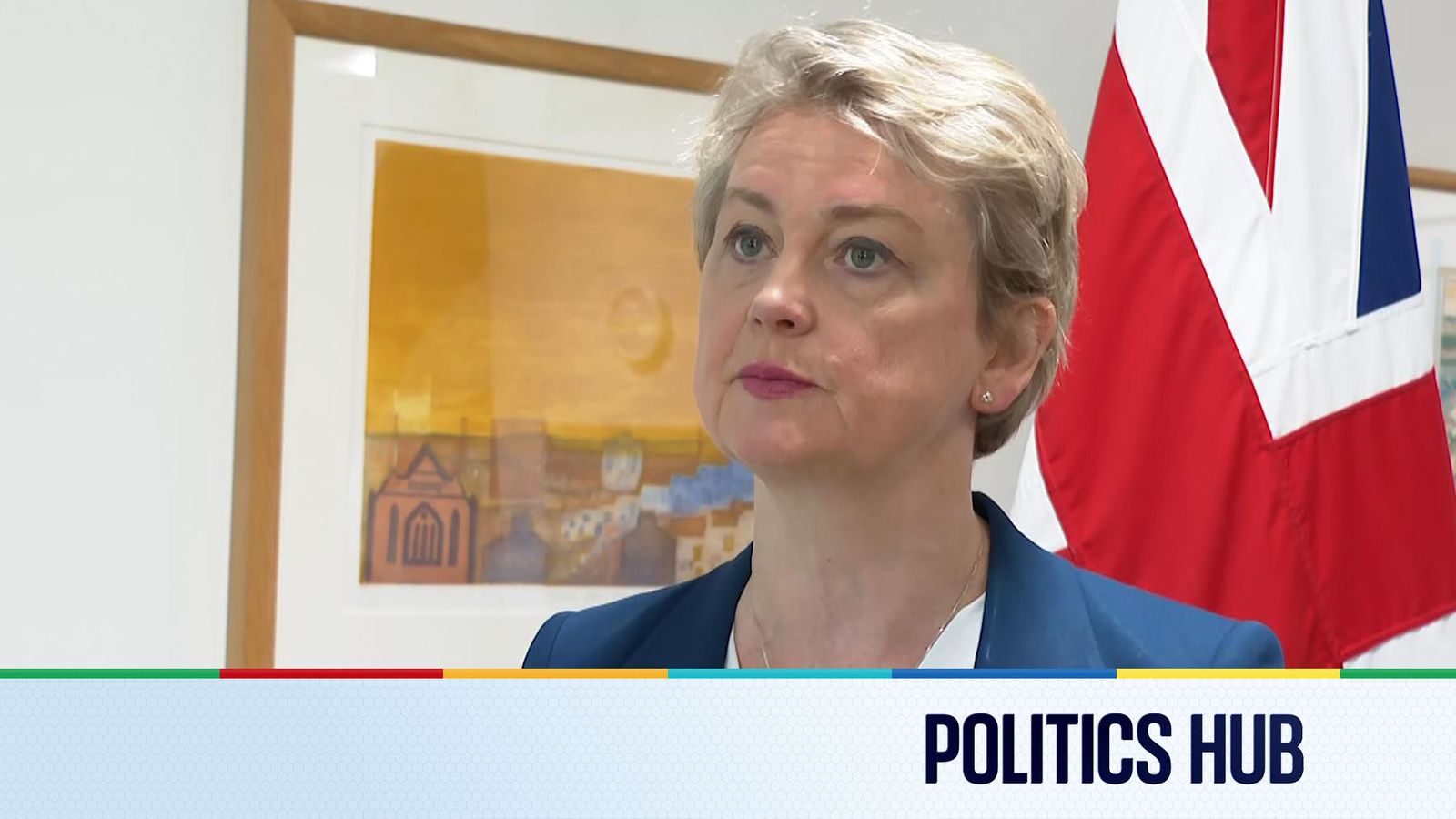Digital ID has been opposed by millions – but India trip may have shown path to success
One metric for the rise and fall of this government might end up being the progress of the rollout of digital ID.
The lack of a clear plan – despite the high profile announcement by the PM – means the destination still remains slightly opaque, and some cabinet ministers are sceptical.
However, the PM’s India trip suggests that there might just be a path to success, if things fall in Keir Starmer’s favour.
During his visit, Starmer met the boss of Infosys, Nandan Nilekani, who is behind the rollout of digital ID to more than 1.4 billion Indian citizens.
Afterwards, when I asked about it at the closing press conference of the India trip, he was infused by a fresh enthusiasm for the plan, not evident at the Labour gathering in Liverpool in the days after he first unveiled it.
Watch: How do digital IDs work in India?
Below is what he said to me, transcribed in full.
But as you read it, notice how the PM’s explanation and justification for this scheme – which will be one of the biggest projects this government undertakes if it does happen – centres around convenience for citizens and makes no mention of the case originally used for it – to combat illegal migration.
Starmer told me: “We did discuss [digital ID] yesterday. And in particular, the benefits that it has brought in India.
“We’ve obviously also looked at other countries – Estonia, for example. The speed with which it allows citizens here to access services, particularly financial services, is something that was recognised in our discussions yesterday and actually at the fintech discussion that we had today, as well.
“So, we’re looking at those examples of how digital ID helps individuals, with the processes that sometimes take too long and are too cumbersome, and makes it easier for them.”
The answer is clear: the prime minister now puts personal convenience as the top justification.
